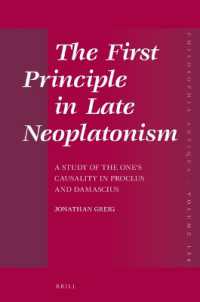Full Description
Care for Australia's children and elderly is provided in a mixed economy, in which for-profit providers are playing an increasingly important role alongside more traditional government and non-government organisations. Does the growth of for-profit provision affect the quality of services or of jobs in paid care? Does it change the political dynamics of the social care sector in contemporary welfare states? How might service users, their families, and organisations work together to sustain and improve the quality of care services? What theories and evidence help us to understand the process and consequences of the shift toward for-profit provision of social care? In nine chapters by leading researchers, this book explores these and other questions, to inform policy and practice in this key field of social policy.
Contents
About the authors
Preface and acknowledgements
Introduction: politics, profits and practices in child and aged care
Debra King and Gabrielle Meagher
The political economy of for-profit paid care: theory and evidence
Gabrielle Meagher and Natasha Cortis
For-profit organisations in managed markets for human services
Bob Davidson
Outsourcing of elder care services in Sweden: effects on work environment and political legitmacy
Rolf Å. Gustafsson and Marta Szebehely
Caring for profit? The impact of for-profit providers on the quality of employment in paid care
Debra King and Bill Martin
Blurred boundaries: how paid careworkers and care managers negotiate work relationships
Jane Mears
Parents as consumers of early childhood education and care: the feasibility of demand-led improvements to quality
Jennifer Sumsion and Joy Goodfellow
Improving quality in Australian child care: the role of the media and non-profit providers
Bronwen Dalton and Rachel Wilson
The giant in the playground: investigating the reach and implications of the corporatisation of child care provision
Frances Press and Christine Woodrow








